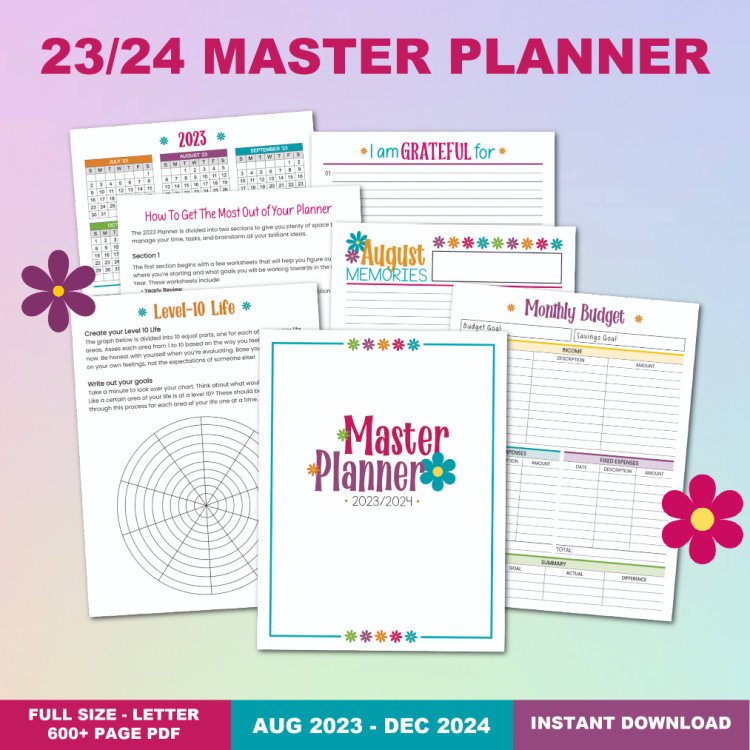How to Plan a Vacation Abroad Without Spending Extra Money
**This page contains affiliate links. I only recommend items that I love and actually use or have used in the past. Clicking the link does not mean that you will pay more for the item, only that I make a tiny commission if you make a purchase. Thank you so much! I really appreciate when you support the Krafty Planner.**
Planning a vacation abroad is exciting. Researching faraway places with strange-sounding names, imagining new adventures, exotic cuisine, foreign cultures – it’s the stuff that dreams are made of.
However, there can be a sobering downside: having to keep an eye on the budget.
Vacationing abroad can be expensive. Currency exchange rates, accommodations, meals, and transportation all have to be taken into account. Fortunately, with smart planning, it's entirely possible to enjoy a foreign getaway on a budget.
However, one of the costs that is often overlooked by travelers abroad is the expense of transportation. This can easily add up. Especially if you’re visiting sizable countries like the United Arab Emirates.
One of the best ways to get around in a foreign country is to rent a car. Besides the convenience, it gives you an amount upfront to factor into your budget in advance, so there are no unpleasant surprises later on.
Furthermore, if you are planning a long vacation in the UAE, for example, you can rent a car Dubai monthly, which saves on the usual car rental prices.
Here are a few more practical tips on how to plan your vacation in a foreign country without overspending:
1. Set a Realistic Budget
The first step is to establish a realistic budget. Take into account all potential expenses.
Your budget should include:
Airfares
Accommodation
Transportation
Meals
Activities
Money for souvenirs
An extra money as a buffer against unexpected occurances contingencies.
Investigate the cost of living in the country you’re visiting to get a better idea of how much you're going to need to spend daily in terms of accommodation and meals. Is it an expensive country or a relatively cheap country?
Once you have an idea of how much it’s going to cost to get by each day, multiplied by how long you’re planning to stay, you’ll be able to start calculating the budget you’ll need.
2. Flexible Travel Dates
You can save a great deal of money on airfares by choosing the right time to fly. For example, off-season airfares are far cheaper than in-season rates. Look online to find the best deals on flights.
If at all possible, travel during the off-peak season or on weekdays to cut costs. You can also consider booking connecting flights rather than direct flights as they may be significantly cheaper.
3. Affordable Accommodation Options
Accommodation is the single most expensive item when traveling abroad, but there are ways to keep costs down. Rather than booking expensive hotels, consider cheaper alternatives such as hostels, B&Bs, guesthouses, and vacation rentals.
Websites like Airbnb and Hostelworld can help you find affordable places to stay. An added benefit is that you’ll get a chance to mix with the locals.
4. Transportation
If your budget cannot be stretched to hiring a rental car, most cities around the world have extensive and affordable public transportation systems. However, it may be tricky to familiarize yourself with routes, schedules, and fares in a foreign country, so it’s best to prepare beforehand.
5. Eat Local
Eating out at restaurants can quickly take big bites out of your budget, especially in upmarket or touristy areas. Save money by eating at street food kiosks and affordable off-the-beaten-track eateries frequented by locals.
The benefits? Local pubs and diners always have the best food plus you'll save money as well as enjoy authentic cuisine while soaking up the local culture.
6. Low-Cost Activities
You don't need to spend a fortune to have a memorable vacation. Look out for free and low-cost activities in local guidebooks. Visit museums and art galleries with low or free admission rates.
You can also take advantage of outdoor activities such as visiting parks, hiking, swimming, or simply exploring the streets on foot.
7. Currency Exchange Rates
Before exchanging currency or using your credit/debit card abroad, be mindful of the exchange rates and fees.
If you’re exchanging US dollars, pounds, or euros for a foreign currency, more often than not you’ll get a favorable exchange rate as these currencies are strong compared to many other foreign currencies.
If you’re on a limited budget, consider visiting countries with weaker currencies to get the most for your money.
Avoid currency exchange services at airports or tourist areas as they often charge higher fees and offer unfavorable rates. Use ATMs to withdraw cash instead.
Planning a vacation in another country can be done without spending all of your savings, especially if you’re visiting a country with a favorable exchange rate and a low cost of living.
So what are you waiting for?
Plan your itinerary and pack your bags!
Before You Go:
Here are a few more posts you might like:
5 Best Tips for Preparing Your Meals Ahead of Time and the Tools You Need to Succeed
Free Printable Book Tracker Bookmarks to Chart Your Reading Journey!
Unlock A World Of Organization Inside The Krafty Planner Printable Vault
See my Link Party Directory for a current list of blog parties I attend each week.
FOR PERSONAL USE ONLY – Please Read Freebies Terms of Use.
(This post may contain affiliate links. For more information, see my disclosures here.)
- SHARE THIS POST -
Did you like this post? Do you know someone else who might enjoy it? Please take a minute to share it on Pinterest, Facebook, or your favorite social media… Thank you!


























